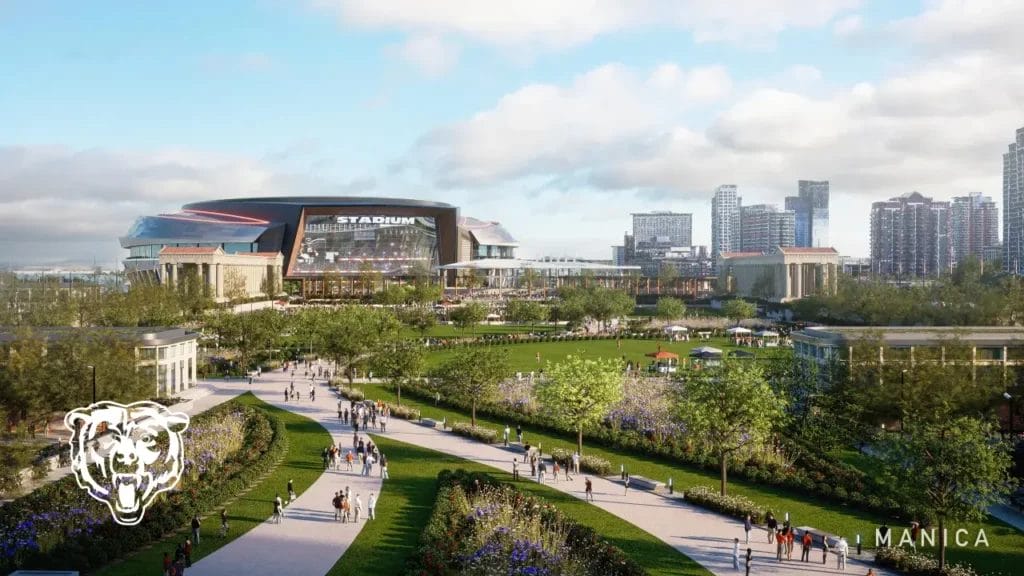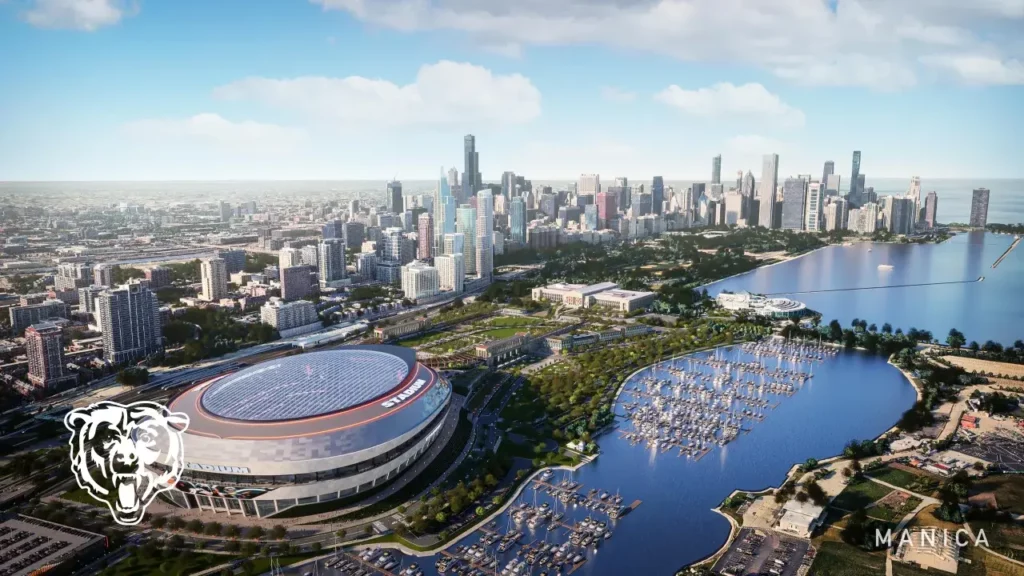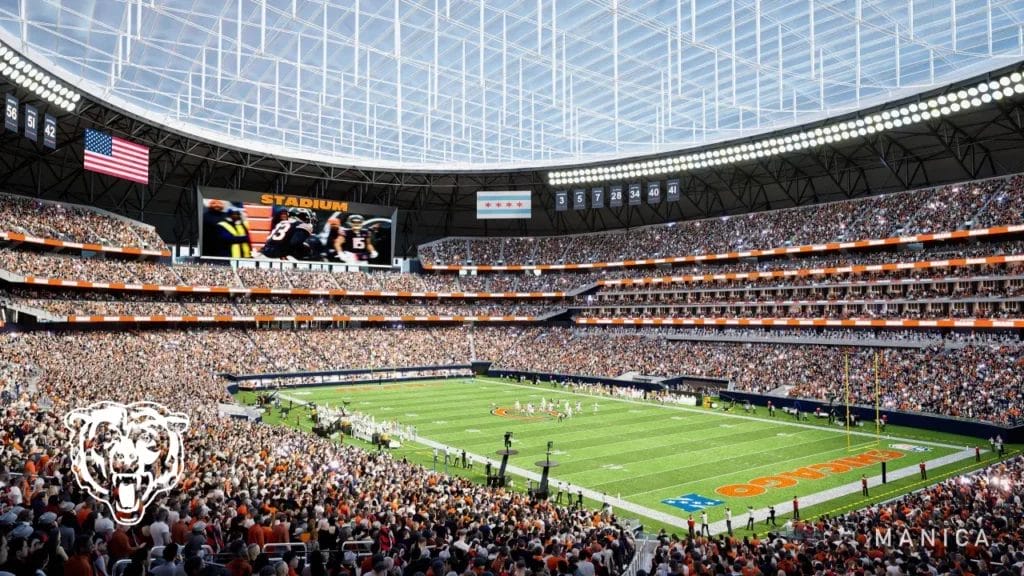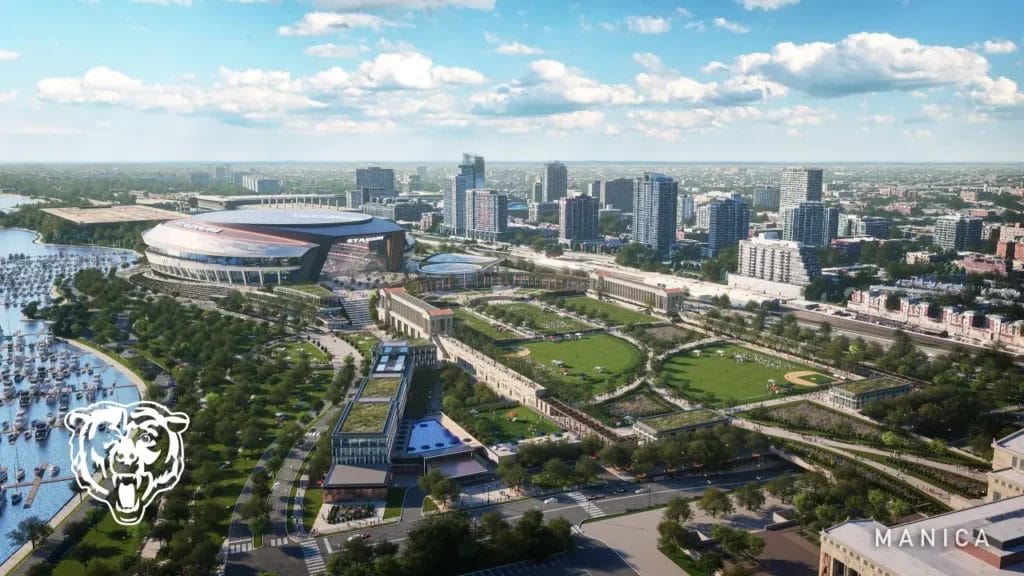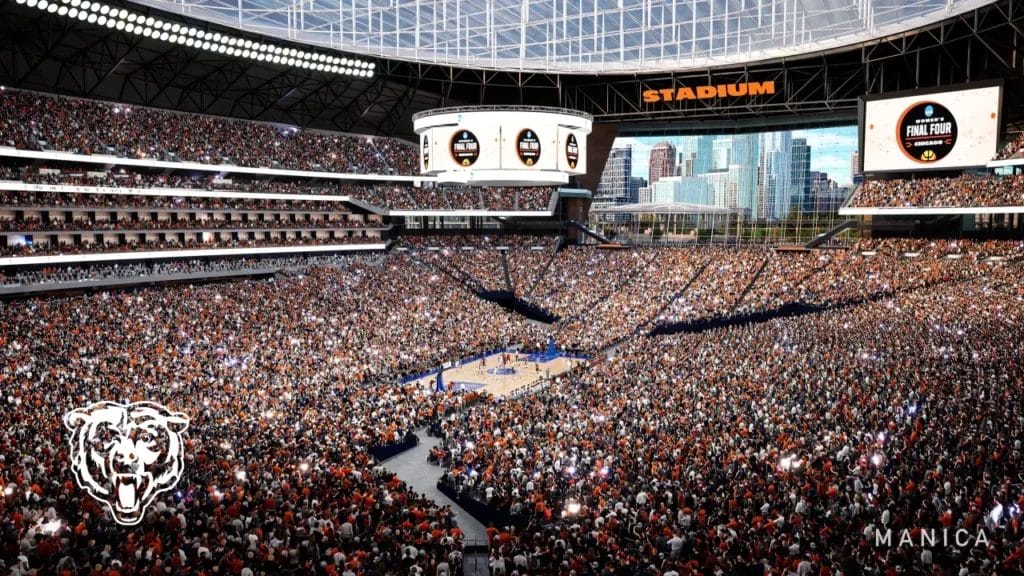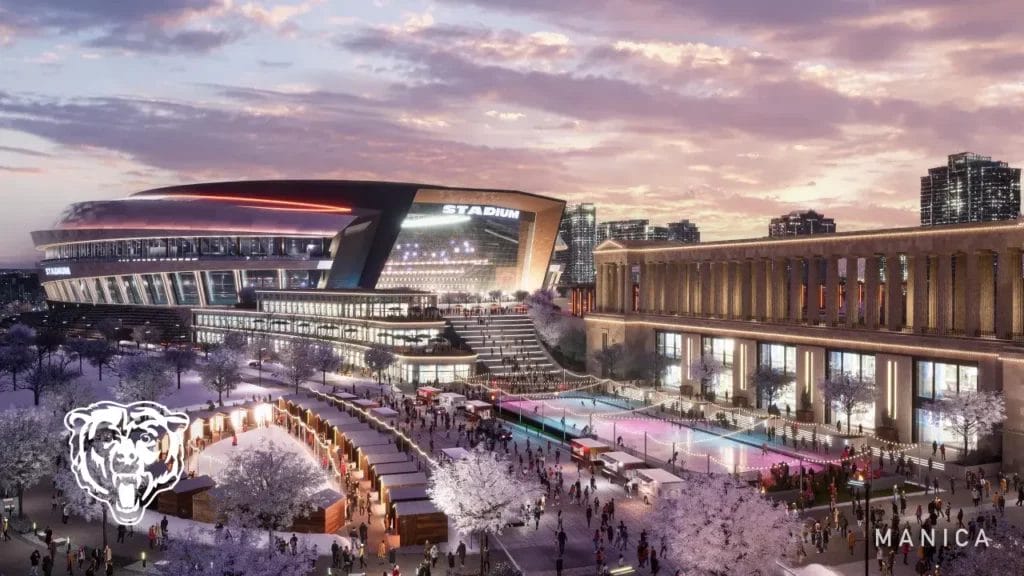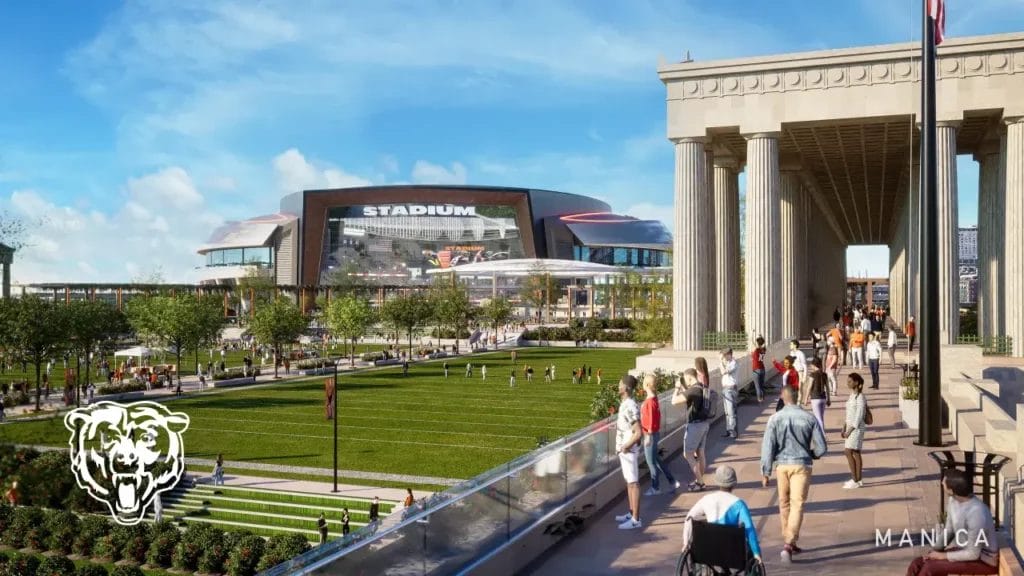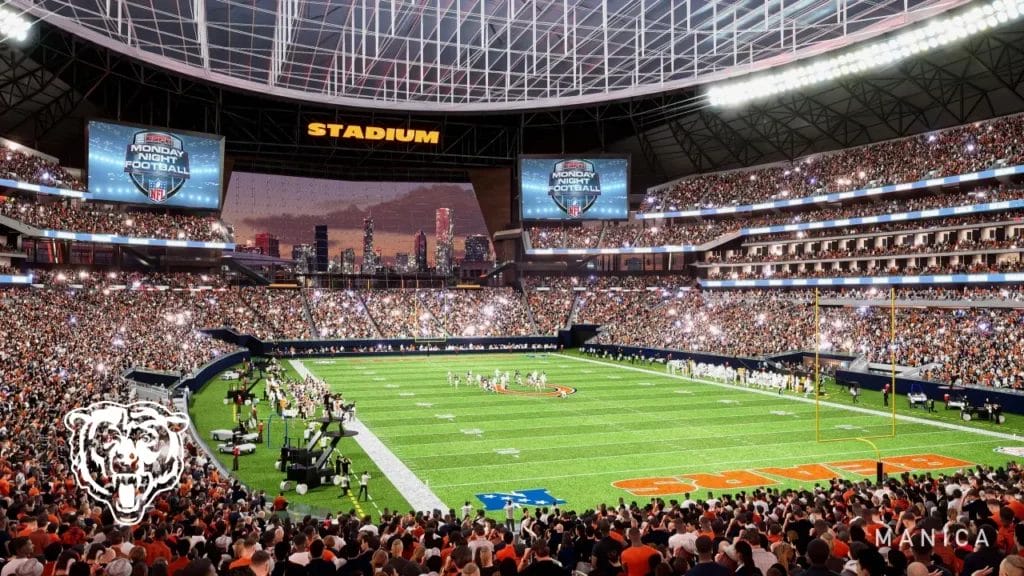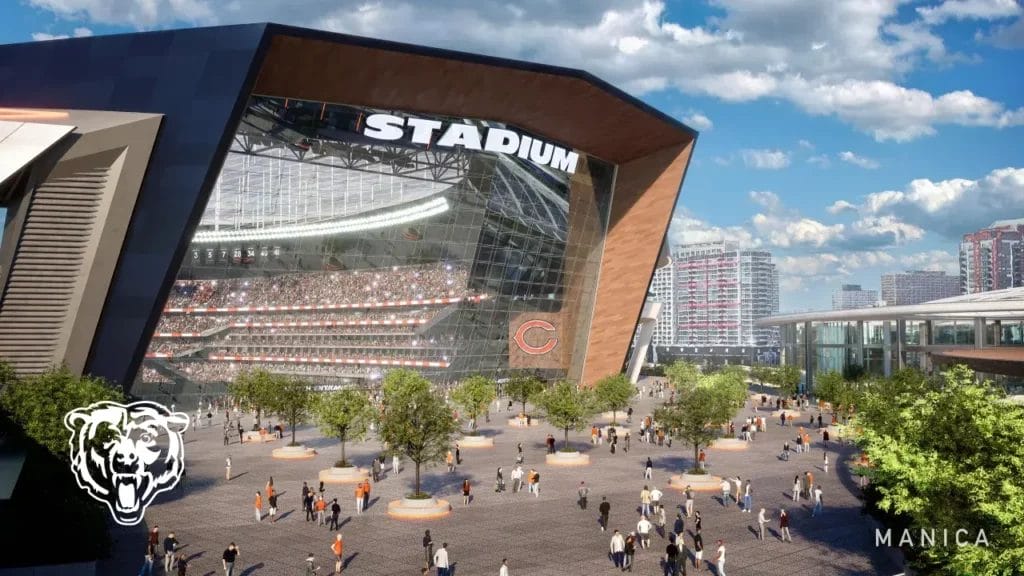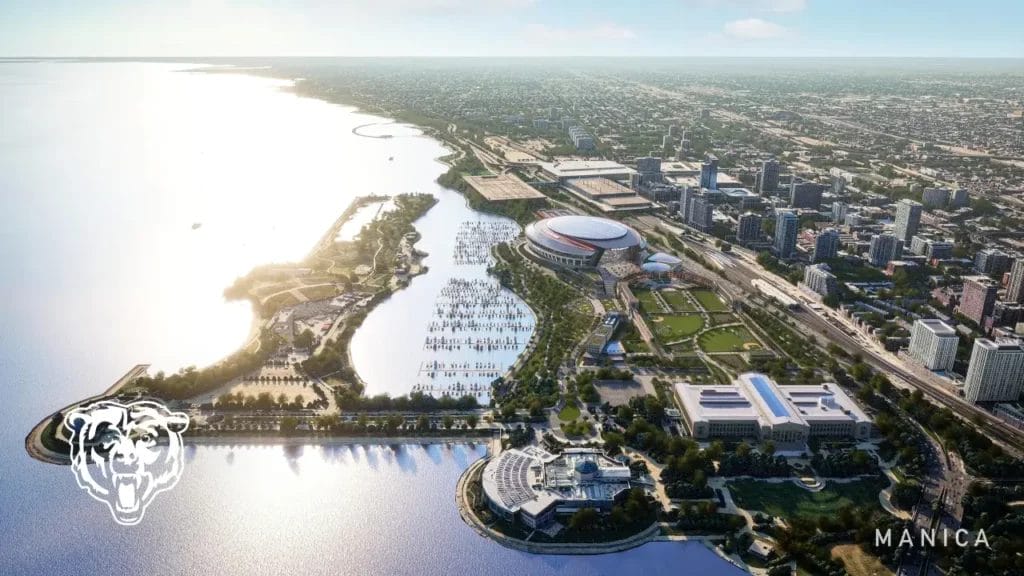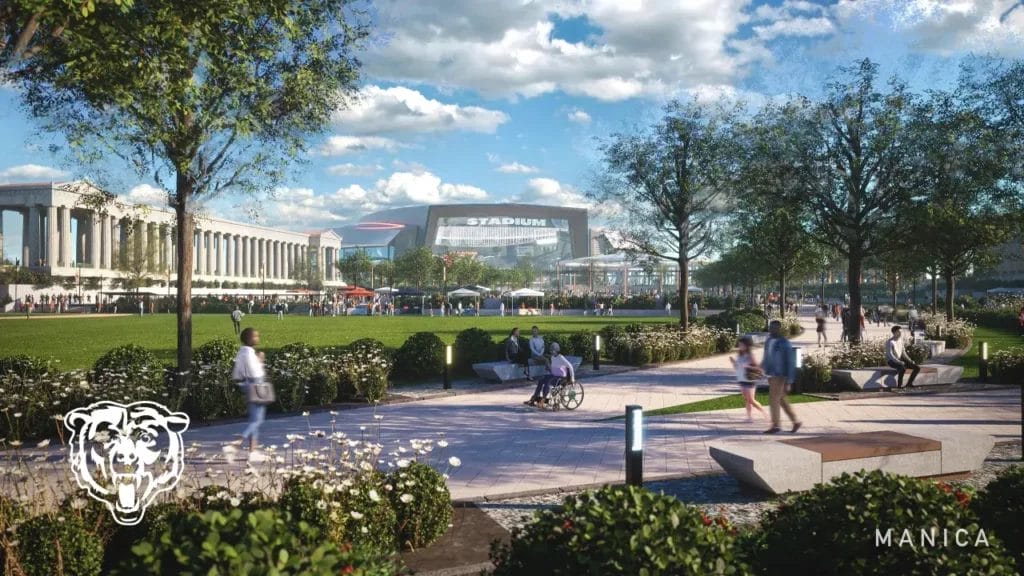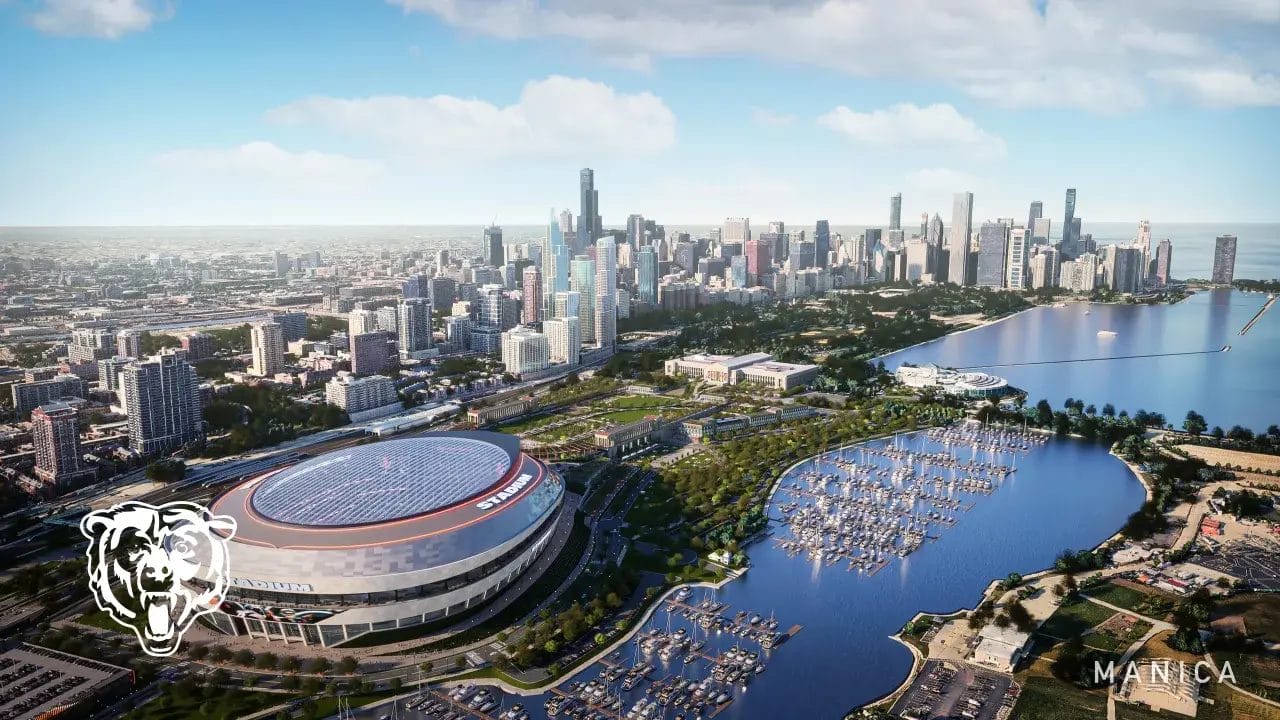The Chicago Bears on Wednesday, April 24, unveiled plans for a new $4.6 billion domed football stadium on Chicago’s lakefront. It will replace the historic Soldier Field stadium, which will be demolished after nearly 100 years in operation.
During an elaborate video presentation, the Bears outlined their grand plans that include a sleek, contemporary lakefront stadium located several blocks south of Soldier Field, a war memorial. In addition to stunning views of Chicago’s skyline and Lake Michigan, it will have a fixed roof and a lush, tree-lined promenade that keeps Soldier Field’s iconic colonnades. Bears’ executives said it will keep the fixed roof, because a retractable roof would cost an extra $100 million.
Mayor Brandon Johnson said taxpayers will not pay for the stadium, which is in Alderman Lamont Robinson’s 4th Ward. But the Tribune reported taxpayers will pay half of the $4.6 billion structure. Bears’ executives will seek a $300 million loan from the NFL Stadium Fund.
The team said the new stadium will generate over $1.3 billion in economic impact.
“This is not an easy project, but Chicago doesn’t like it easy. We like to do the difficult things … the things that resonate with people for generations to come,” Bears’ President Kevin Warren told a news conference at Soldier Field. “This Museum Campus is the most attractive footprint in the world.”
But questions remain how Bears’ officials will fill a $1.5 billion construction funding gap. It’s also uncertain how the team would deconstruct much of Soldier Field, while preserving historic colonnades and other historic features of the stadium.
The plans also include reconfiguring parking lots and roads that lead in and out of the stadium complex. The entire project will be built in phases.
The Bears’ organization wanted a stadium with a roof, so it could host Super Bowl games, Big Ten playoffs, Olympics games, concerts and big events.
Bears’ officials say Chicago continuously gets passed over for Super Bowl games. Their presentation on Wednesday showed how other U.S. cities reaped hundreds of millions of dollars after hosting the Super Bowl.
The new stadium will mean the end of an era for Chicago’s historic Soldier Field.
Owned by the Chicago Park District, Soldier Field was built in 1924. With a capacity of 63,500, the public facility is home to the Chicago Bears and the Chicago Fire, and hosts an array of sporting, entertainment and community events each year.
On July 10, 1966, Martin Luther King Jr. and the Chicago Freedom Movement held a rally at Soldier Field. As many as 60,000 people came to hear Dr. King, as well as Mahalia Jackson, Stevie Wonder, and Peter Paul and Mary.
Since 2004, Soldier Field has hosted the Chicago Football Classic, a matchup of top Historically Black Colleges and Universities (HBCU) football teams. One HBCU player is Bears’ legendary running back Walter Payton, whose statue stands outside Soldier Field, along with that of Chicago Bears’ founder and coach George Hallas.
In 1984, Soldier Field was listed on the National Register of Historic Places. That designation was removed after the stadium under Mayor Richard M. Daley received a $632 million renovation in 2002. Taxpayers paid $432 million for the upgrade.
The neoclassical façade with its iconic Doric columns remained, but the stadium’s interior was totally gutted and replaced with a modern structure that towered over the columns. More corporate sky boxes were added. The new look was heavily criticized by historians and some fans who often joked that a spaceship landed in the historic structure.
Despite Chicago’s cold winters during football games, Soldier Field was left without a roof after the renovations. In 2022, the Bears’ organization began demanding major renovations to Soldier Field. They wanted to increase the seating capacity and update the roof to host Super Bowl games.
When relations soured with Mayor Lori Lightfoot, the Bears purchased the closed Arlington Heights racecourse in Arlington Heights for $197 million. The Bears’ organization threatened to move the Bears’ franchise to the northwest suburbs, but many fans still believed the franchise would stay in Chicago despite the Bears’ threats.
